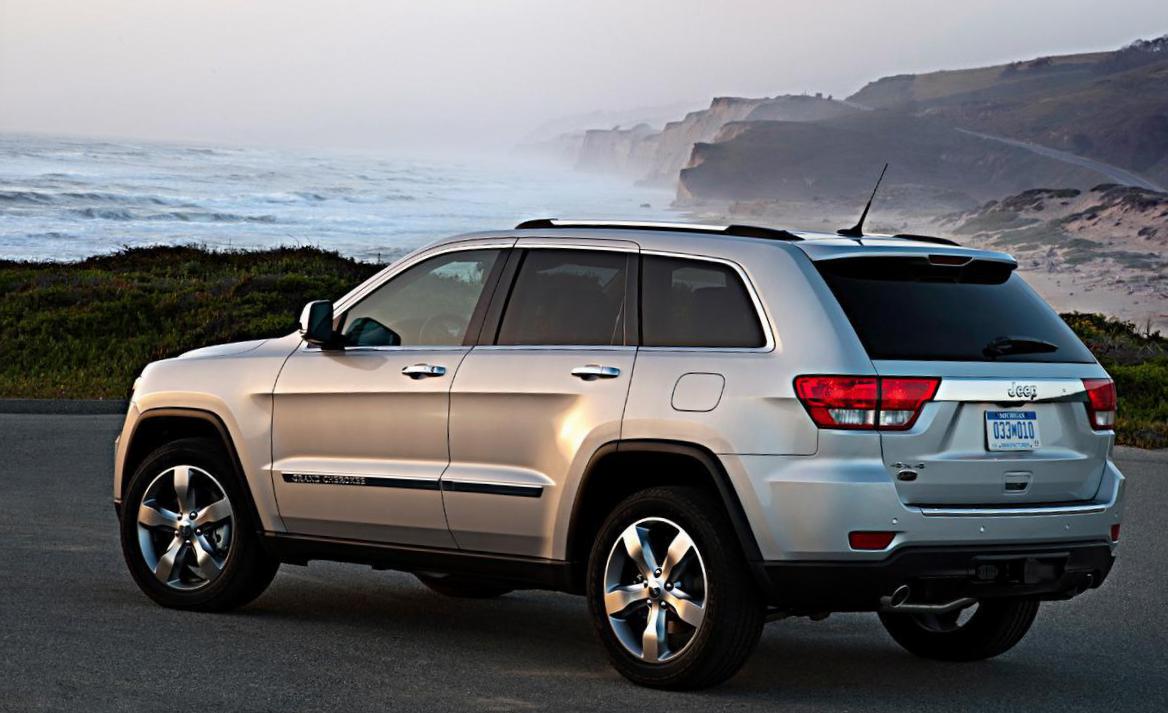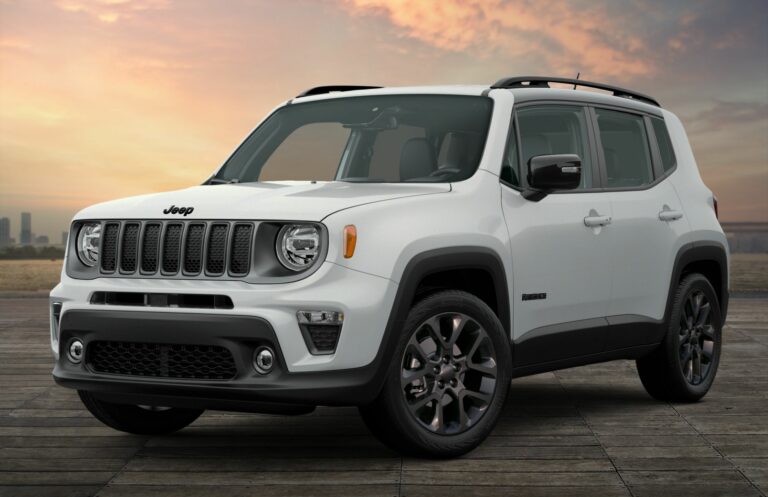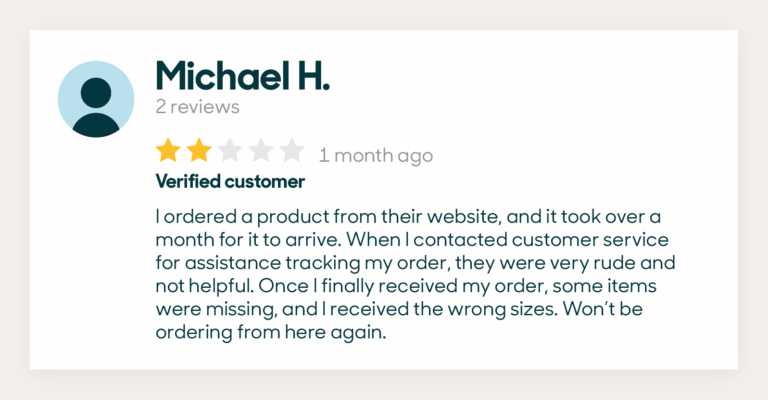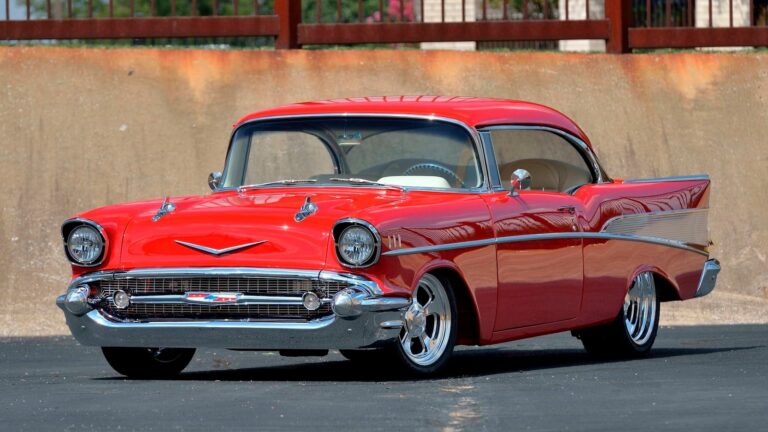Jeep Cherokee Lease Terms: Your Comprehensive Guide to Driving Smarter
Jeep Cherokee Lease Terms: Your Comprehensive Guide to Driving Smarter jeeps.truckstrend.com
The allure of a new vehicle, especially one as capable and iconic as the Jeep Cherokee, is undeniable. Its blend of rugged off-road capability, refined on-road manners, and distinctive styling makes it a popular choice for adventurers and families alike. While purchasing outright is an option, a growing number of drivers are turning to leasing as a flexible and often more affordable way to get behind the wheel. However, navigating the world of auto leases, particularly understanding the "Jeep Cherokee Lease Terms," can feel like deciphering a complex financial document.
This comprehensive guide aims to demystify Jeep Cherokee lease terms, providing you with the knowledge and confidence needed to make an informed decision. We’ll break down the jargon, highlight the critical factors, and offer practical advice to ensure your leasing experience is as smooth and advantageous as possible. Understanding these terms isn’t just about saving money; it’s about aligning your vehicle choice with your lifestyle and financial goals.
Jeep Cherokee Lease Terms: Your Comprehensive Guide to Driving Smarter
Understanding the Fundamentals of Leasing a Jeep Cherokee
Before diving into the specifics of the Jeep Cherokee, it’s essential to grasp the core concept of auto leasing. Unlike purchasing, where you buy and own the vehicle, leasing means you are essentially paying to use the vehicle for a set period. You don’t own the car, but you have exclusive rights to drive it under specific conditions outlined in your lease agreement.
The primary benefit of leasing is often lower monthly payments compared to financing the same vehicle. This is because you’re only paying for the depreciation of the vehicle over the lease term, plus interest (known as the "money factor") and various fees, rather than its full purchase price.
Key components of any lease, including a Jeep Cherokee lease, include:
- MSRP (Manufacturer’s Suggested Retail Price): The sticker price of the vehicle.
- Capitalized Cost (Cap Cost): The negotiated price of the vehicle that the lease is based on. This is effectively your "purchase price" for leasing purposes.
- Residual Value: The estimated value of the vehicle at the end of the lease term. This is a crucial factor in determining your monthly payment.
- Money Factor: The interest rate equivalent on your lease.
- Lease Term: The duration of your lease, typically 24, 36, or 48 months.
- Mileage Allowance: The maximum number of miles you’re permitted to drive the vehicle annually without incurring penalties.

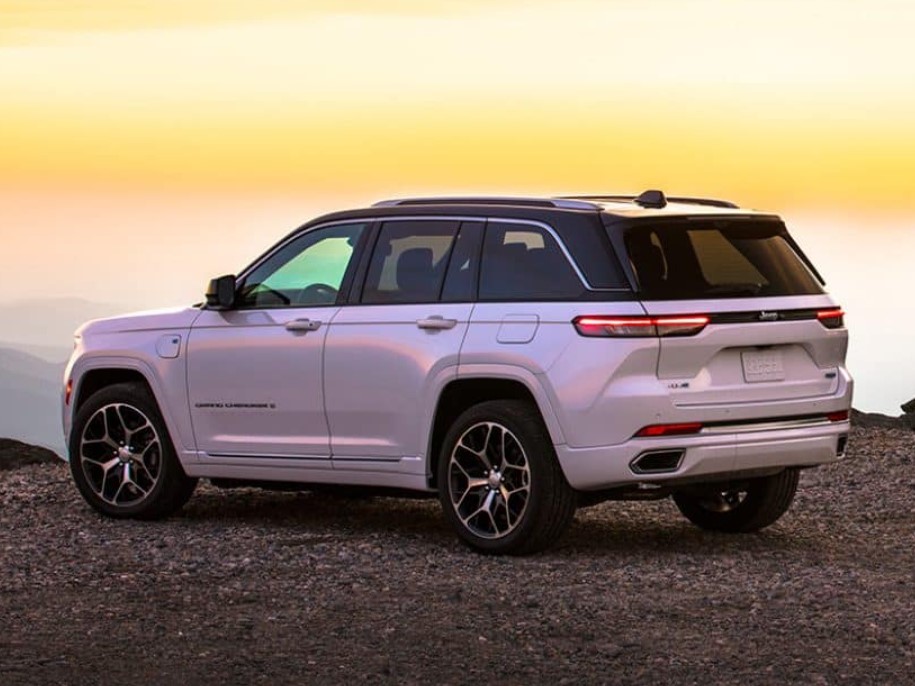
Why Lease a Jeep Cherokee? Benefits to Consider
Leasing a Jeep Cherokee offers several compelling advantages that make it an attractive option for many drivers:
- Lower Monthly Payments: As you’re only paying for the vehicle’s depreciation during your lease period, monthly payments are typically significantly lower than financing a purchase. This can free up cash flow for other expenses or allow you to afford a higher trim level of the Cherokee.
- Drive a New Vehicle More Often: With lease terms commonly ranging from 24 to 48 months, you can enjoy the latest models, technologies, and safety features every few years. This means you’re always driving a vehicle under warranty.
- Warranty Coverage: Throughout the entire lease term, your Jeep Cherokee will almost certainly be covered by the manufacturer’s bumper-to-bumper warranty. This eliminates unexpected repair costs, providing peace of mind.
- Less Hassle with Resale: At the end of the lease, you simply return the vehicle (assuming it meets wear-and-tear guidelines and mileage limits). You don’t have to worry about selling the car, negotiating prices, or dealing with market depreciation.
- Potential Tax Advantages: For business owners, lease payments can sometimes be tax-deductible, offering a financial incentive not available with a purchase. (Consult a tax professional for specific advice).
- Reduced Down Payment: While a down payment can lower your monthly lease costs, many leases require little to no money down, making it easier to get into a new vehicle.

Deconstructing Key Lease Terms for Your Jeep Cherokee
Understanding the following terms is paramount to negotiating a favorable Jeep Cherokee lease:
1. Capitalized Cost (Cap Cost)
This is the negotiated price of the vehicle that your lease payments are based on. It’s the most significant factor influencing your monthly payment. Treat the Cap Cost as if you were buying the car outright. Negotiate it down as much as possible. A lower Cap Cost directly translates to lower monthly payments. Any trade-in value or down payment you make will reduce the Cap Cost, further lowering your payments.
2. Residual Value
The residual value is the projected wholesale value of the Jeep Cherokee at the end of the lease term. It’s expressed as a percentage of the MSRP. For instance, if a Jeep Cherokee has an MSRP of $35,000 and a 55% residual value after 36 months, its estimated value at lease end is $19,250.
The residual value is set by the leasing company (the captive lender, like Stellantis Financial Services, or a bank) and is generally non-negotiable. A higher residual value is better for you, as it means the vehicle is depreciating less over the lease term, resulting in lower monthly payments. The Jeep Cherokee generally holds its value reasonably well, which can contribute to attractive lease terms.
3. Money Factor (Lease Rate)
The money factor is the financing charge on a lease, similar to an interest rate. It’s usually expressed as a very small decimal (e.g., 0.00250). To convert the money factor to an equivalent annual percentage rate (APR), multiply it by 2400. So, 0.00250 x 2400 = 6% APR.
A lower money factor means lower monthly payments. Your credit score significantly impacts the money factor you’ll be offered. Excellent credit can qualify you for the best rates. Dealers may mark up the money factor, so it’s crucial to research competitive rates before negotiating.
4. Lease Term
This refers to the duration of your lease agreement, most commonly 24, 36, or 48 months.
- Shorter Terms (24-36 months): You’ll drive a new car more frequently and remain under warranty for the entire term. Monthly payments might be slightly higher due to less depreciation time, but the vehicle will have a higher residual value.
- Longer Terms (48 months): Offers the lowest monthly payments because the depreciation is spread over a longer period. However, you might exceed warranty coverage towards the end of the lease, potentially incurring repair costs. The vehicle will also have a lower residual value.
Choose a term that aligns with how long you typically like to keep a vehicle and your comfort level with potential out-of-warranty repairs.
5. Mileage Allowance
This specifies the maximum number of miles you can drive your Jeep Cherokee each year without penalty. Common allowances are 10,000, 12,000, or 15,000 miles per year. Exceeding this limit results in overage charges, typically ranging from $0.15 to $0.25 per mile.
Be realistic about your driving habits. While a lower mileage allowance results in a lower monthly payment, going significantly over can lead to substantial fees at lease end. It’s usually more cost-effective to opt for a higher mileage allowance upfront if you anticipate driving more.
6. Acquisition Fee & Disposition Fee
- Acquisition Fee: An administrative fee charged by the leasing company to set up the lease. It’s usually a few hundred dollars and can often be rolled into your capitalized cost.
- Disposition Fee: A fee charged at the end of the lease when you return the vehicle, covering the cost of preparing it for resale. Also typically a few hundred dollars.
These fees are often non-negotiable but should be factored into your overall lease cost.
Navigating the Lease Process for Your Jeep Cherokee
Leasing a Jeep Cherokee involves several steps to ensure you get the best deal:
- Research Models and Trims: Determine which Jeep Cherokee trim (e.g., Latitude, Limited, Trailhawk, Summit) and features best suit your needs and budget. The MSRP significantly impacts lease payments.
- Get Multiple Quotes: Contact several Jeep dealerships. Ask for a detailed lease quote that breaks down the Cap Cost, Residual Value, Money Factor, and all fees. Don’t just focus on the monthly payment.
- Negotiate the Capitalized Cost: This is your primary point of negotiation. Aim to pay as close to dealer invoice price as possible, just as you would if buying. Incentives and rebates can also reduce the Cap Cost.
- Understand the Money Factor: Ask the dealer for the money factor. You can cross-reference this with online lease calculators or forums to ensure it’s competitive for your credit tier.
- Review the Lease Agreement Thoroughly: Before signing, read every line of the contract. Ensure all agreed-upon terms (Cap Cost, mileage, fees) are accurately reflected. Don’t hesitate to ask questions about anything you don’t understand.
- Credit Score Impact: Your credit score is paramount. A higher score (typically 700+) will qualify you for the best money factors and terms.
End-of-Lease Options for Your Jeep Cherokee
As your Jeep Cherokee lease approaches its end, you’ll have several choices:
- Return the Vehicle: The most common option. Ensure the vehicle meets the specified wear-and-tear guidelines and is within your mileage limit to avoid extra charges.
- Buy the Vehicle: If you love your Cherokee, you have the option to purchase it for the residual value stated in your lease agreement. This can be a good option if the market value of the car is higher than its residual value.
- Extend the Lease: Some leasing companies offer short-term extensions (e.g., month-to-month) if you need more time to decide or wait for a new model.
- Lease a New Jeep: Many lessees choose to trade in their current leased Cherokee for a new one, often from the same dealership, leveraging any loyalty incentives.
Common Pitfalls and How to Avoid Them
- Ignoring Mileage Limits: Be honest about your driving habits. Over-mileage penalties add up quickly.
- Excessive Wear and Tear: Dings, dents, major scratches, or damaged interiors beyond "normal wear and tear" will incur charges. Consider minor repairs before returning.
- Not Understanding All Fees: Don’t be surprised by acquisition, disposition, or early termination fees. Ask about all potential costs upfront.
- Focusing Only on Monthly Payment: While important, it’s a symptom, not the cause. Negotiate the Cap Cost, understand the money factor, and assess the residual value to get the best overall deal.
- Early Termination: Ending a lease early can be very expensive, as you’re typically responsible for the remaining payments plus penalties.
Practical Advice and Actionable Insights
- Negotiate the Cap Cost Like a Purchase: This is your most powerful lever. Don’t accept the sticker price.
- Know Your Credit Score: A good score is key to a low money factor. If your score isn’t ideal, work on improving it before leasing.
- Get Quotes in Writing: This helps with comparison shopping and negotiation.
- Read the Fine Print: Understand every clause, especially those related to wear and tear, mileage, and early termination.
- Consider GAP Insurance: Guaranteed Asset Protection (GAP) insurance covers the difference between what you owe on the lease and what your car insurance pays if the vehicle is stolen or totaled. It’s often required and highly recommended.
- Take Care of Your Jeep: Regular maintenance and careful driving will minimize wear and tear charges at lease end.
Sample Jeep Cherokee Lease Term Table (Illustrative Ranges)
Please note: These figures are illustrative examples only and subject to change based on current incentives, region, dealership, credit score, and specific vehicle trim/options. Always get a personalized quote from a dealer.
| Jeep Cherokee Trim (Example) | Lease Term (Months) | Annual Mileage (Miles) | Estimated Down Payment (Incl. Fees) | Estimated Monthly Payment | Estimated Residual Value (%) | Money Factor (Approx.) | Acquisition Fee (Approx.) | Disposition Fee (Approx.) |
|---|---|---|---|---|---|---|---|---|
| Latitude FWD | 36 | 10,000 | $2,000 | $350 – $400 | 55% – 58% | 0.00180 – 0.00250 | $595 | $395 |
| Latitude FWD | 48 | 12,000 | $1,500 | $330 – $380 | 48% – 52% | 0.00200 – 0.00280 | $595 | $395 |
| Limited 4×4 | 36 | 10,000 | $2,500 | $420 – $480 | 54% – 57% | 0.00180 – 0.00250 | $595 | $395 |
| Limited 4×4 | 48 | 12,000 | $2,000 | $400 – $460 | 47% – 51% | 0.00200 – 0.00280 | $595 | $395 |
| Trailhawk 4×4 | 36 | 10,000 | $3,000 | $480 – $550 | 53% – 56% | 0.00180 – 0.00250 | $595 | $395 |
| Trailhawk 4×4 | 48 | 15,000 | $2,500 | $470 – $540 | 46% – 50% | 0.00200 – 0.00280 | $595 | $395 |
Note: Monthly payments do not include sales tax, registration, or local fees, which vary by state.
Frequently Asked Questions (FAQ) about Jeep Cherokee Lease Terms
Q1: Can I negotiate the residual value of a Jeep Cherokee lease?
A1: No, the residual value is set by the leasing company (the bank or captive lender) at the beginning of the lease and is generally non-negotiable. It’s based on industry data and projections.
Q2: What happens if I go over my mileage limit on my Jeep Cherokee lease?
A2: You will incur an overage charge for each mile driven beyond your contracted allowance. This fee typically ranges from $0.15 to $0.25 per mile and is paid at the end of the lease.
Q3: Can I end my Jeep Cherokee lease early?
A3: Yes, but it can be costly. You are typically responsible for the remaining payments, plus potential early termination fees and any outstanding charges for mileage or wear and tear. It’s often more financially prudent to find someone to take over your lease if allowed by the lender, or to buy out the lease yourself.
Q4: Is insurance different for a leased Jeep Cherokee?
A4: Yes, leasing companies typically require higher liability coverage and often mandate comprehensive and collision coverage with lower deductibles than you might choose if you owned the car outright. You’ll need to maintain this coverage throughout the lease.
Q5: What credit score do I need to lease a Jeep Cherokee?
A5: While requirements vary, a good to excellent credit score (typically 700 FICO or higher) is generally needed to qualify for the best money factors and most favorable lease terms. Lenders may approve lower scores but often at a higher money factor.
Q6: Can I trade in my current car when leasing a Jeep Cherokee?
A6: Yes, you can. The trade-in value of your current vehicle can be applied as a "cap cost reduction" (similar to a down payment), which will lower your monthly lease payments.
Q7: Are there any hidden fees I should be aware of?
A7: Beyond the acquisition and disposition fees mentioned, be aware of potential charges for excessive wear and tear, missing equipment (e.g., extra keys, owner’s manual), or failure to perform scheduled maintenance. Always read the lease agreement thoroughly.
Conclusion
Leasing a Jeep Cherokee can be an excellent way to enjoy a new, well-equipped vehicle with lower monthly payments and less long-term commitment than purchasing. However, the key to a successful and satisfying lease experience lies in a thorough understanding of all the "Jeep Cherokee Lease Terms."
By familiarizing yourself with concepts like Capitalized Cost, Residual Value, Money Factor, and mileage allowances, you empower yourself to negotiate effectively and avoid common pitfalls. Don’t rush the process; take the time to research, compare quotes, and read every line of your lease agreement. With the right knowledge and a smart approach, you can confidently drive off in your new Jeep Cherokee, knowing you’ve secured terms that truly work for you. Happy trails!

